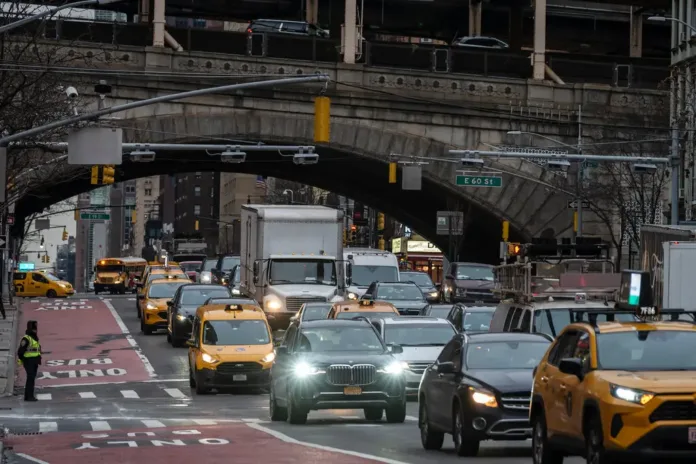Congestion pricing, a strategy to alleviate traffic congestion by charging vehicles to enter specific areas during peak times, has been a focal point of debate in various cities. Notably, New York City’s implementation of a $9 toll for vehicles entering Manhattan below 60th Street has encountered significant challenges.
Trump Administration Halts NYC Congestion Pricing
In February 2025, the Trump administration rescinded its approval of New York City’s congestion pricing program. Transportation Secretary Sean Duffy cited concerns that the toll unfairly burdens working-class drivers and small businesses. Despite this federal action, the Metropolitan Transportation Authority (MTA) has filed a lawsuit to maintain the toll, arguing that it is essential for funding transit infrastructure and reducing traffic congestion. Governor Kathy Hochul supports the program, emphasizing its benefits in traffic reduction and environmental improvement. The legal battle continues, with the future of the toll uncertain.
Global Perspectives on Congestion Pricing
Beyond New York, other cities are exploring or implementing congestion pricing to address traffic and environmental concerns.
Glasgow, Scotland: The Glasgow City Council is considering introducing a toll on the Clyde Tunnel to generate additional revenue for the city’s budget. The proposed toll would target motorists from outside Glasgow, with local residents potentially exempt. This initiative aims to address an annual shortfall of approximately £820,000 for the tunnel’s maintenance.
Bangkok, Thailand: In October 2024, Thailand’s Ministry of Transport announced plans to implement a congestion charge on drivers entering inner Bangkok roads. The proposed fee ranges from 40 to 50 baht and aims to fund a flat fare for electric rail lines in the greater Bangkok region. The plan is currently under study, with implementation expected by mid-2025.
Implications and Future Outlook
The debate over congestion pricing highlights the balance between environmental benefits, traffic management, and economic impact. While proponents argue that such measures reduce traffic congestion and fund public transportation, opponents express concerns about financial burdens on certain groups. As legal challenges and public debates continue, the future of congestion pricing remains uncertain in various regions.
For a detailed overview of the Trump administration’s decision to halt NYC’s congestion pricing, you can watch the following video:
